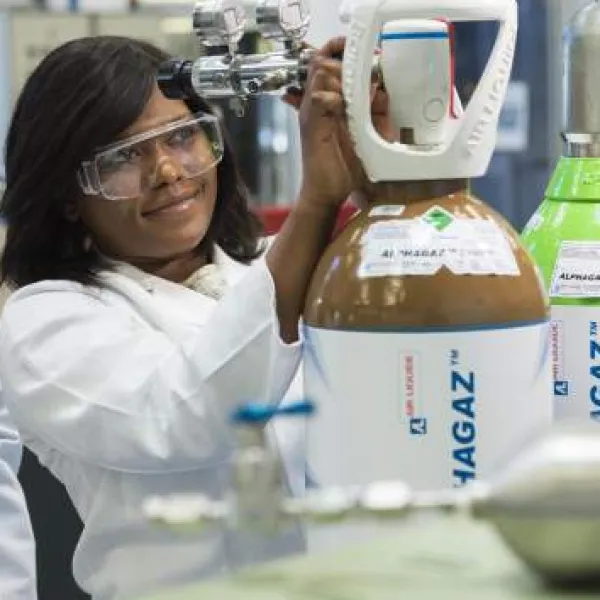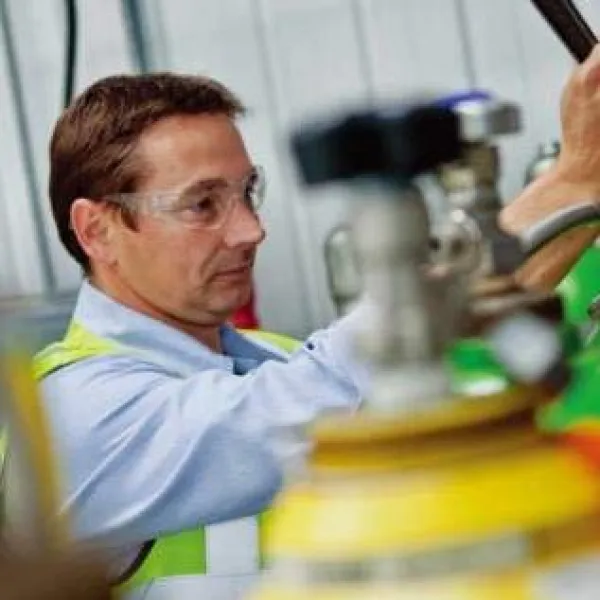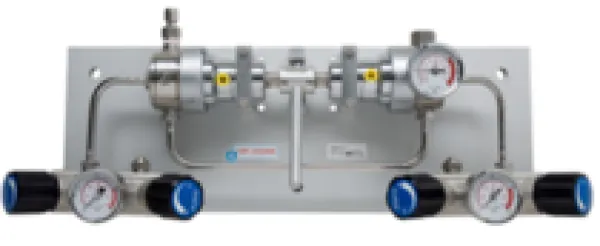Gas mixtures for gas detection systems
Calibration and Bump Gases
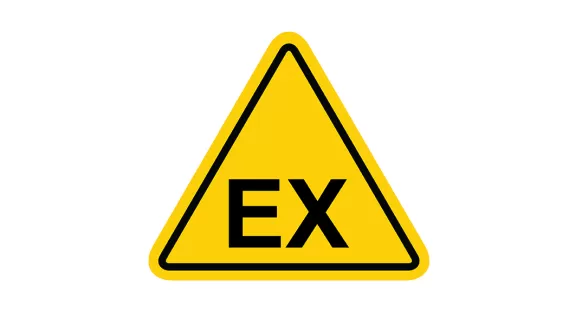
The 'bump test' - testing gas detectors to verify that they are still functioning reliably - should be performed periodically. If the result is negative, the instrument must be presented for calibration.
Calibration involves evaluating the instrument's response against a reference gas. If necessary, the device is adjusted to optimize the accuracy.
Large and small refillable cylinders
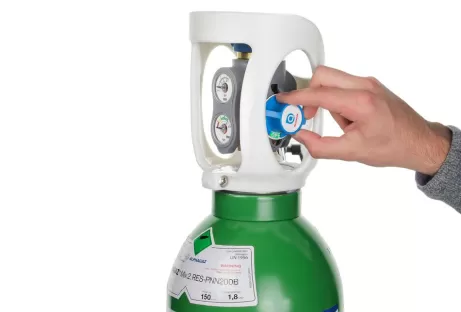
Gas mixtures for gas detection applications in small or larger cylinders typically have a filling pressure of 150 bar, allowing greater gas consumption.
The smaller cylinders (5 and 10 liters of water content) can be equipped with an advanced pressure reducing valve, which makes it easier to use. Safety is further improved as the locking and regulation system is protected by a special hood.
Small, non-refillable cylinders
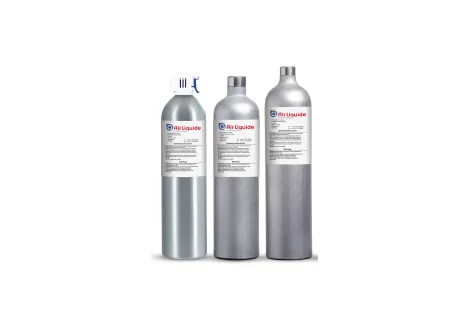
A complete range of pure gases and gas mixtures in small, portable, non-refillable cylinders for gas detection applications.
The use of these smaller, non-refillable packs provides cost savings as there is no need to pay cylinder rent and transport costs are lower.
The advantages:
- No cylinder rental.
- Lower transport costs.
- Easy to transport and carry, facilitating work in hard-to-reach locations.
- Guaranteed long-term accuracy and stability.
- Available with compact pressure and flow control equipment
Applications
Gas detection systems ensure workplace safety by alerting personnel to the presence of flammable gases (Ex), lack of oxygen in a particular room (Ox) and exposure to toxic gas (Tox).
Continuous monitoring:
- Stationary gas detection systems are mainly used in large industrial plants, buildings and storage areas.
- Portable gas detection equipment protects each individual worker.
- Gas detection for entering a confined space. Checking for suffocation hazards due to lack of ventilation or the presence of hazardous substances in confined work areas.
- Motorized Vehicle Surveillance . A forklift, truck, or other motorized vehicle will shut down or fail to start in explosive situations.
Leak detection. Detecting possible leaks in locations where gases or liquids are stored or transported, or where refrigerants are used (CFC, HFC, HCFC).
Do you have any questions about gases for gas detection systems?
Please fill in our contact form below and we'll come back to you as soon as possible

